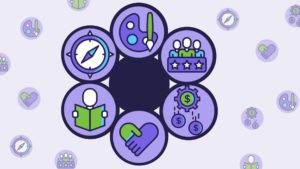
Understanding Motivators: Social
High Socials want to find ways to give back to their community. Learn more in this post.

High Socials want to find ways to give back to their community. Learn more in this post.

Motivators describe why people do things: the internal desires that drive behavior. Motivators correlate with career choice, college major selection, and extracurricular activities. Learn more in this post.
aesthetic AI asking awards college fits Communication compliance continuous learning creativity DISC dominance Education empathy Empowering Educators FBLA future of education goals Indigo Indigo Assessment Indigo Data Indigo Education Company individualistic influencing leadership LearnLaunch Listening mentoring Motivators Partners Peak to Peak High School Personalized Learning persuasion planning Podcasts Professional Development self-awareness social soft skills Speaking Engagement steadiness team Teamwork theoretical TTI utilitarian